I know sharks aren’t what everyone is running out to see, and I get it – the entertainment industry and the media have done a really, really good job of making us all think that these predators are really bloodthirsty beings just waiting for us to deliver ourselves on a silver platter in the ocean. But, that is so not true in so many ways. At most, they’re curious and, at the least, you’ve probably been in the ocean with a shark at least once, and you never knew because they really don’t care about you. What is happening to sharks is the problem, and our responsibility to save them.
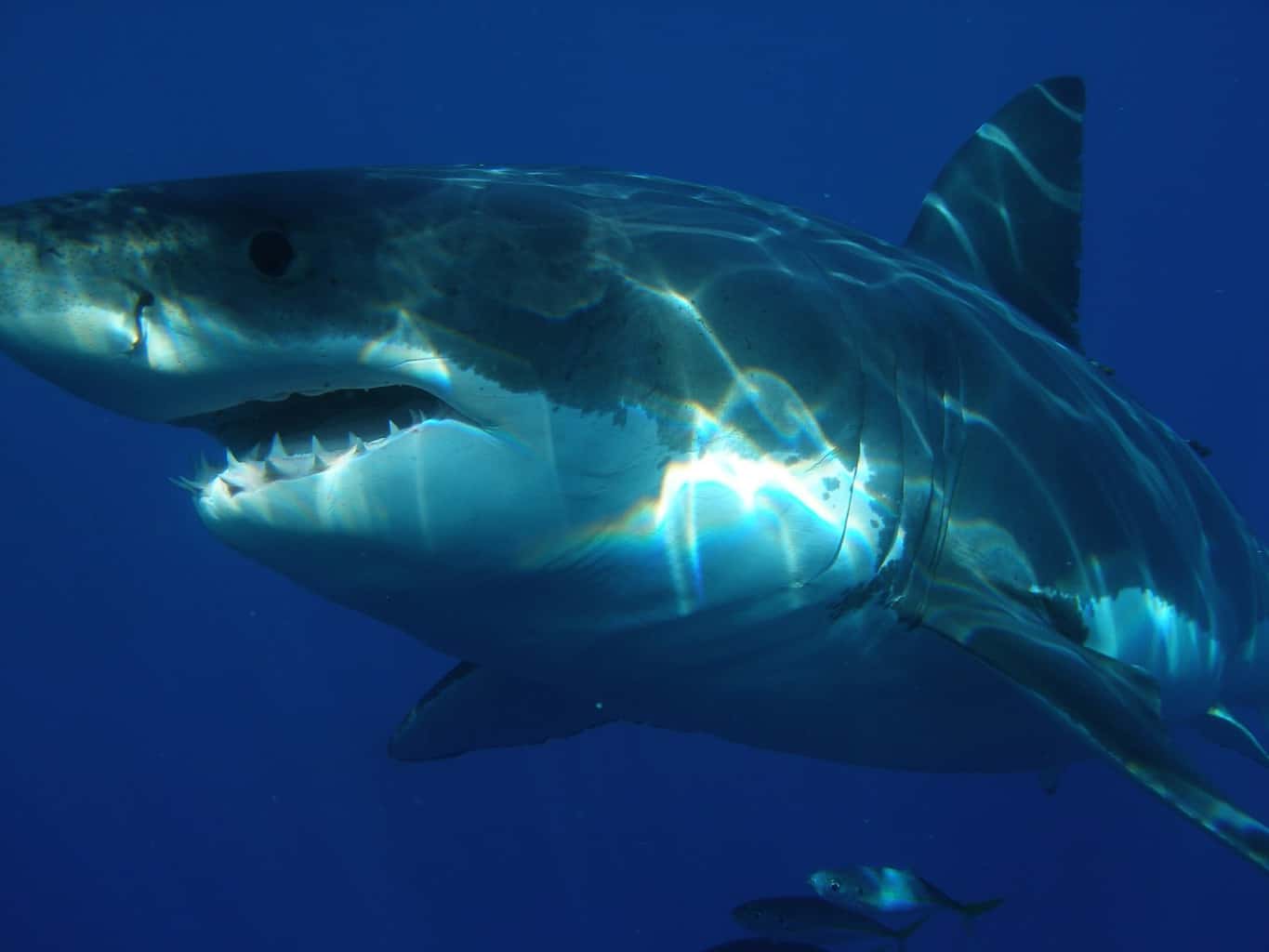
How many sharks are killed every year?
Sharks are a very common fear and are a very specific reason why many people stay out of the oceans, but the real thing to fear is how many sharks humans are killing every year. It’s alarming, and as someone living on the same planet as these astounding predators (they aren’t preying on you – don’t worry), you really should care.
It is estimated that the true number of sharks being killed every year could be as high as 273 million, with 100 million of this due to shark finning alone.
What issues plague sharks?
There are, unfortunately, many reasons why sharks are killed every year. Shark finning is a real problem, but several other issues plaguing sharks.
Culling
Culling happens by governments in response to spikes in shark fatalities with the ridiculous notion that this will somehow reduce the risk to the public. Culling can happen via drumlines, shark nets, and other methods. During the 1960s and 70s, shark control programs in Hawaii killed 4,668 sharks but failed to produce measurable decreases in shark attacks.
Trophy Hunts
Shark fishing contests are popular amongst professional and amateur fishermen. They compete to catch the biggest shark or the largest number of sharks. Even “catch and release” contests offer a very slim chance of survival.
Shark Meat
Shark meat is popular in many cultures and considered a delicacy, and can even be found in grocery stores in the United States. It’s actually quite dangerous to consume shark meat. The number of heavy metals and toxic chemicals that they consume would make anyone insane to eat shark meat.
Shark Byproducts
Just because you aren’t directly consuming shark fin soup or shark meat does not mean you’re not consuming shark in some way. Here are some items that contribute to the decrease in shark populations:
- Energy drinks
- Pet food, supplements, and vitamins
- Shark liver oil
- Shark cartilage powder
- Shark teeth (there are ways to ethically find shark teeth)
- Shark leather
- Cosmetics and beauty products
Bycatch
Massive fishnets and longline fishing are devastating our oceans and eventually our planet. While fishermen may be targeting a particular type of fish, they catch anything and everything and just discard what they don’t want. Bycatch is a huge issue in all seafood and is one of the many, many reasons why I choose to be vegan.
Shark Finning and Shark Fin Soup
Shark finning is the atrocious act of removing fins from sharks and discarding the rest of the shark, often still alive. Without their fins and unable to swim, they will essentially die of suffocation or be eaten by other predators.
The fins are the hot commodity of a shark, so by dumping the rest of the shark, fishing vessels can increase their harvest and profitability.
Shark finning is so popular because the demand for shark fin soup has skyrocketed, particularly in China and other Asian countries but has been seen everywhere, including the U.S. It is estimated that the worldwide value of the shark fin industry ranges anywhere from $540 million to $1.2 billion and it is estimated that 73 million sharks are killed each year by finning alone, and some estimates go as high as 100 million.
Due to legal terminology, shark finning is really only shark finning when the rest of the shark is discarded alive and at sea. If the fins are removed on land during processing, this is not shark finning which, as you can imagine, dramatically skews these numbers.
Plastic Pollution
Plastic pollution is harmful to all sea life, most notably sea turtles. However, scientists have counted more than 1,000 documented instances of sharks and stingrays becoming tangled in plastic, meaning the number is probably much higher.
How much should we actually fear sharks?
A shark attack is, of course, possible, but that does not mean it is probable. Shark attack possibilities should be kept in perspective. People are more likely to be killed by insects and farm animals than sharks or other “dangerous” wildlife.
Globally, there are approximately 70-100 shark attacks annually, resulting in 5-15 deaths. Now, if you’re thinking, “well, haven’t the numbers increased?” Sure, but so has the population tremendously.
There are three types of shark attacks.
- “Hit and Run” – these are the most common and most likely occur in the surf zone, and the shark does not return after inflicting a single bite or wound. Most likely a case of mistaken identity.
- “Bump and Bite” – these are less common and more fatal and involve deeper waters and involve circling and bumping before the attack.
- “Sneak” – is less common and involves an attack without warning.
The last two are believed to be a result of feeding or antagonistic behaviors such as plane and sea accidents. The International Shark Attack Files is the only global scientifically documented and comprehensive database of all known shark attacks and dates back to the 1500s.
Why are sharks important?
Sharks are apex predators and have major and extensive implications for marine ecosystems and the entire global ecosystem, especially coral reefs. Removing sharks from a reef environment in the ocean has a trickling effect on other species. Without sharks, carnivorous fish that are normally consumed by sharks are now thriving, in turn, consuming more of the fish that keep the corals clean.
How Can You Save the Sharks
Wondering what you can do to save the sharks? There are so many ways that can help – you don’t have to live by the ocean or have money to spare.
- Take Sharkwater’s Shark Free Pledge
- Eat plant-based to help all marine life and reduce your risk of accidentally ingesting or using sharks. Shark meat is often labeled as fish.
- Scuba diver? Take the Project AWARE Shark Conservation specialty course.
- Go diving with sharks, or snorkeling. This provides an ethical alternative to fishing.
- Eliminate single-use plastic from your life.
- Spread the word!
9 Organizations to Support to Save the Sharks
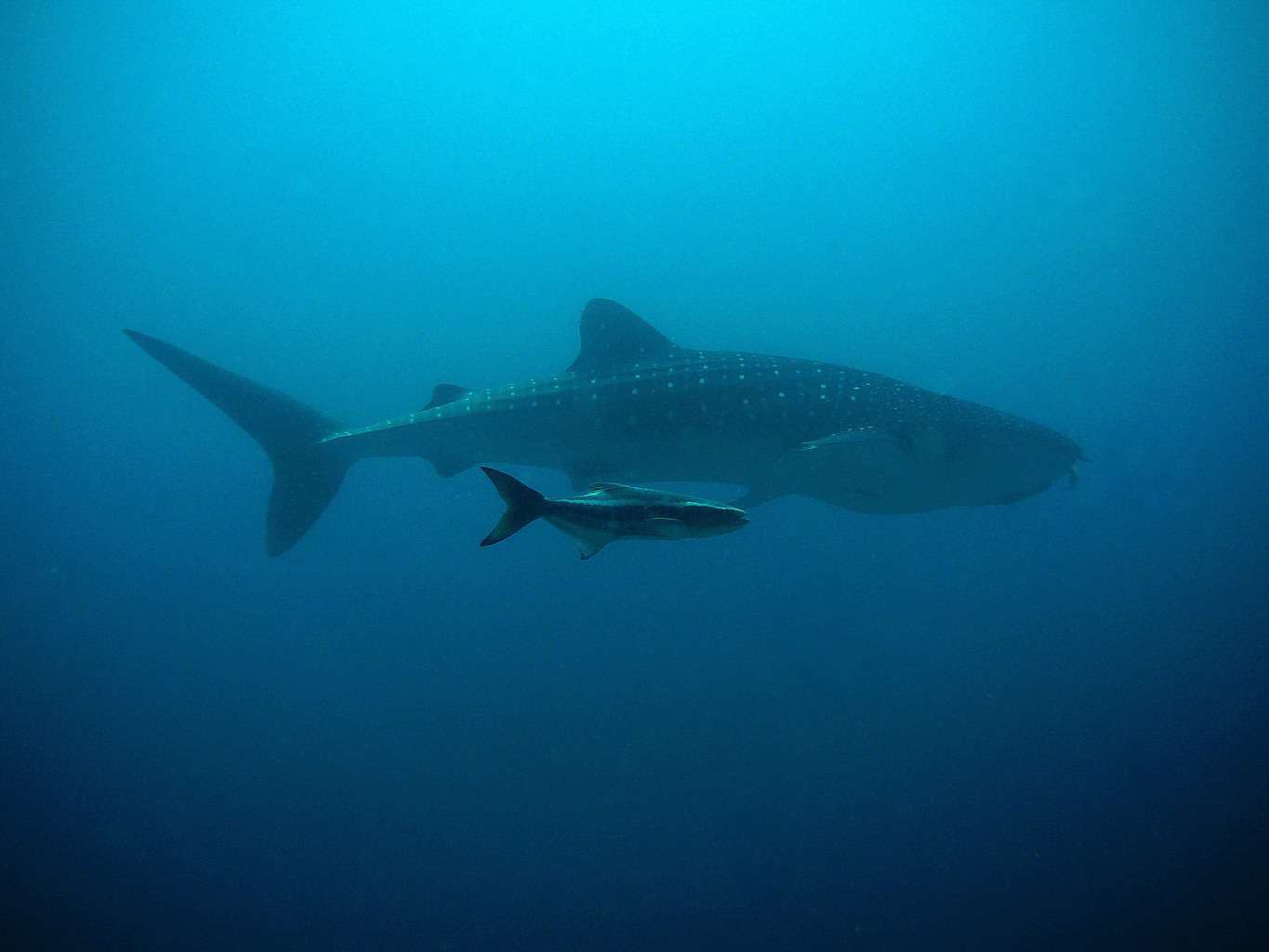
Florida Program for Shark Research
The Florida Program for Shark Research (FPSR) is a team of research scientists and educators and includes the Chondrichthyan Tree of Life Project, the International Shark Attack File, and the International Sawfish Encounter Database. In regards to sharks, the FPSR investigates and compiles information on shark attacks and uses population genetics to determine sharks’ relative abundance and distribution.
Essential Information about the Florida Program for Shark Research
Leonardo Dicaprio Foundation
The Leonardo Dicaprio Foundation supports four projects aimed at decreasing shark mortality in high-priority regions.
- Conserving sharks and rays in the Southwest Indian Ocean by securing a political commitment from Nairobi Convention Member States to implement policies to protect sharks and rays.
- Developing protection of key threatened shark and ray species at CITES would provide the basis for protection from international trade for their fins, meat, and other parts.
- Manage Shark and ray mortality in Indonesia by developing science-based safeguards that can be put in place in the high shark mortality regions
- Advancing protection in regional fisheries management organizations by expanding international fishing limits for heavily fished sharks and rays and stronger finning bans.
Essential Information about the Leonardo Dicaprio Foundation
www.leonardodicaprio.org/protecting-threatened-sharks-and-rays/
OCEARCH
OCEARCH is a data-centric organization built to help scientists collect data in the ocean with a mission to accelerate the ocean’s return to balance and abundance. OCEARCH is bringing the world along in real-time with the help of the OCEARCH Tracker, allowing people to see where tagged animals are in the world.
Essential Information about OCEARCH
Predators in Peril
Predators in Peril is funded by Predators in Peril Founder Andy Murch through his eco-tourism company, Big Fish Expeditions – a dive expedition company that puts divers in the water with sharks and other large animals.
The Predators in Peril Project involves working in the field with artisanal shark fishermen and scientific researchers to obtain live images and video footage of rare, endangered, or simply overlooked sharks and rays both in their natural habitats and in the process of being captured. Each field expedition is followed by an intensive social media campaign to help spread the word about the subject species.
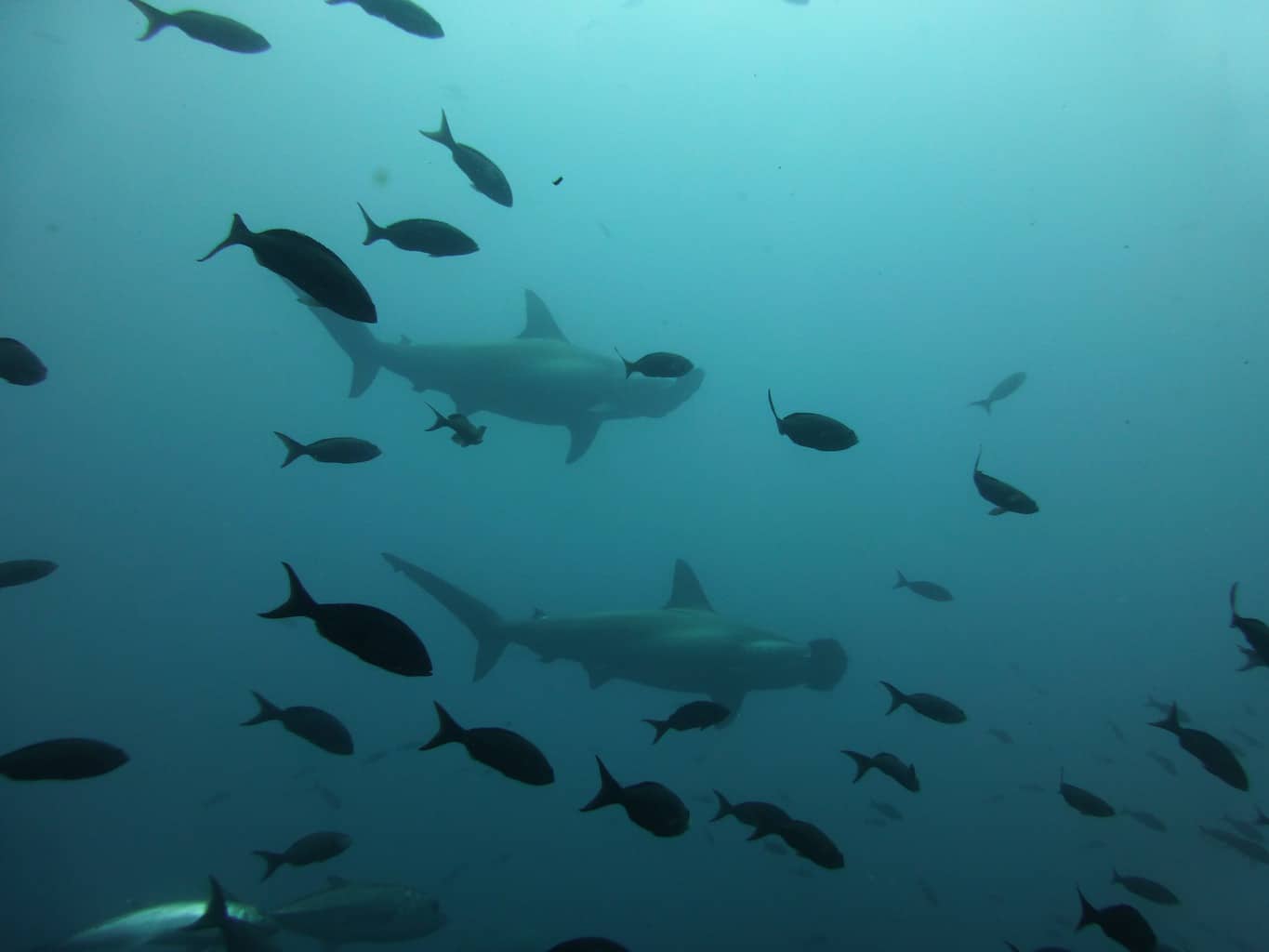
Essential Information about Predators in Peril
Project Aware
Project AWARE started as a project initiated by PADI in the 80s to engage scuba divers and activists around the world in conservation. Project AWARE connects the passion for ocean adventure with marine conservation and the communities that depend on it.
Project AWARE works with others to use the power of international conservation agreements and management regulations for change. They advocate for the full protection of shark species listed as Endangered or Critically Endangered and for the establishment of shark fishing limits and regulations.
Essential Information about Project Aware
Project Hiu
The aim of Project Hiu is not to convert or condemn, but rather slowly introduce the opportunity to a community that has only ever known shark fishing. By hiring shark fishing boats to engage in tourism activities, Project Hiu offers a sustainable tourism option in Indonesia and alternative income for shark fishermen that simultaneously and effectively protect sharks.
Project Hiu is founded on the recognition that the very solution to saving sharks, lay with the men raised to kill them.
Project Hiu was founded by Madison Stewart – one of the badass female scuba divers I think everyone should follow.
Essential Information about Project Hiu
Sea Shepherd
Sea Shepherd is an international, non-profit marine conservation organization that engages in direct action campaigns to defend wildlife, conserve, and protect the world’s oceans from illegal exploitation and environmental destruction. Their campaigns have defended whales, dolphins, seals, sharks, penguins, turtles, fish, krill, and aquatic birds from poaching, unsustainable fishing, habitat destruction, and captivity.
Sea Shepherd investigates and documents when laws are not enforced. They use innovative, direct actions to expose and confront illegal activities on the high seas marine sanctuaries and in countries’ sovereign waters through cooperative agreements with established law enforcement agencies.
Essential Information about Sea Shepherd
Shark Savers – Wild Aid
Shark Savers’s programs focus on action and results and have resulted in more protections for sharks and mantas globally. Shark Savers brings this important issue to the public by compelling campaigns and motivates people to stop consuming shark fin soup and sharks, works to create shark sanctuaries and regulations, and empowers divers as advocates for sharks.
Essential Information about Shark Savers
4Ocean
Made with recycled materials, every bracelet purchased funds the removal of 1 pound of trash from the ocean and coastlines. In less than 2 years, 4ocean has removed 5,478,851 pounds of trash from the ocean and coastlines.
While this isn’t directly focused on sharks, cleaning up the oceans inevitably helps to save the sharks. Additionally, each month is a different colored bracelet focusing on a different marine animal or issue. They then donate a certain amount to an organization focusing on that particular theme. Their generic shark bracelet is black and is a partnership with Project Aware.
Essential Information about 4Ocean
What do you think about sharks after reading this?
↓↓↓ PIN IT ↓↓↓
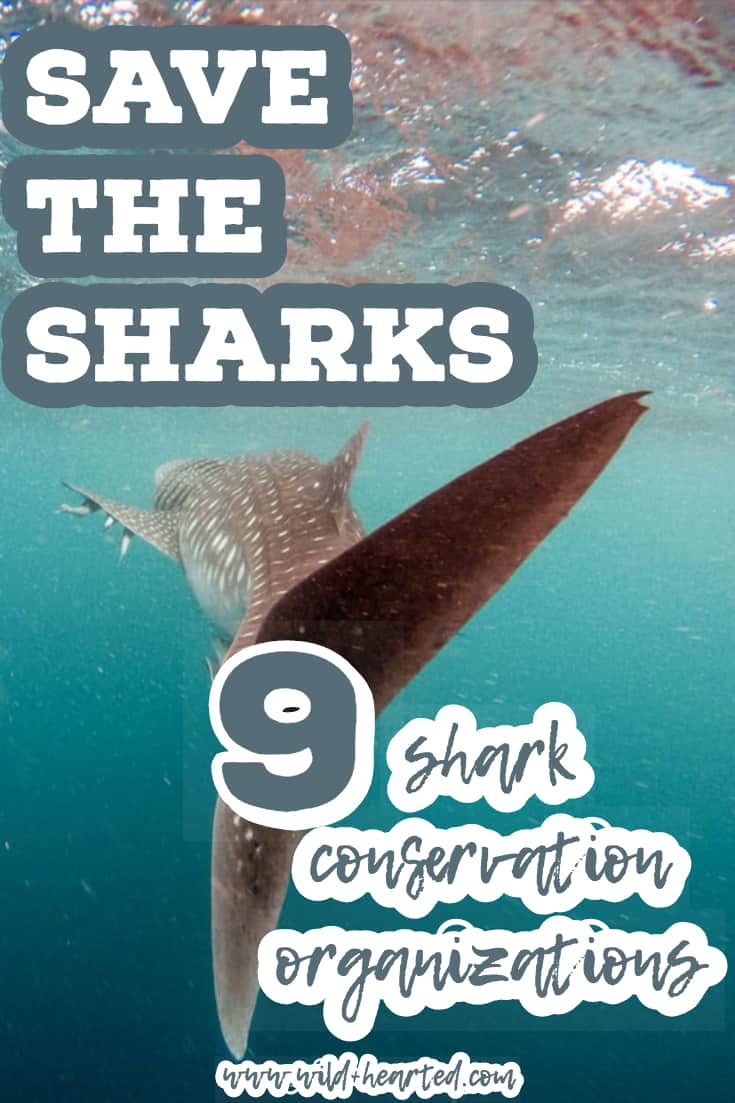
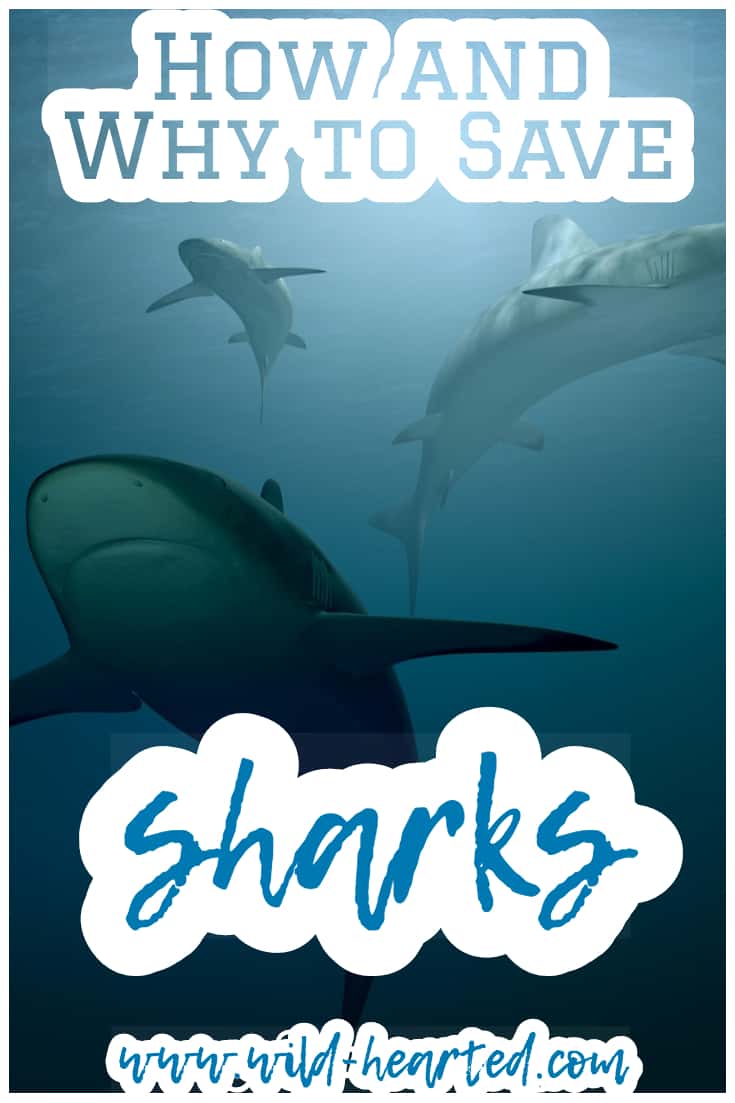
- 9 Weird Things To Do In Dublin, Ireland - April 13, 2024
- 14 Weird Things To Do In Indianapolis, Indiana - April 13, 2024
- Saudi Sands: Discovering Arabia’s Cultural Tapestry - April 1, 2024



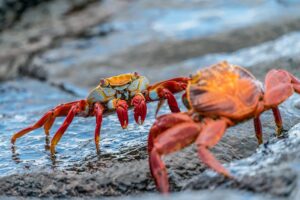

I am absolutely all for saving sharks, I just don’t want to be in the water with them. It is one of those totally irrational fears I’ve had all my life but I would wish no harm on a shark. I know there are super important for the eco-system. I just want to observe them from afar…super far, far, far away!
Wow, I never knew the carnage went so high. 273 million is a very large number. Definitely shark fin soup is a big offender with almost a third of that. Just incredible.
I have a lot of respect and awe for sharks. There is definitely a lot that can be learned by studying and examining them. I have no desire to get up close and personal with one, but admire people who appreciate their beauty and want to help them. I hate no idea Leo DiCaprio had such a strong connection with them.
Shark finning absolutely disgusts me. BUT I had no idea that eating shark could be so harmful. Have to admit that I did try fermented shark in Iceland (one of its delicacies or things to try). Might think about that differently now. I am absolutely fascinated with sharks particularly the great white. I want to cage dive one day with them as this is a huge bucket list dream of mine even though I realize it isn’t 100% safe. But sharks should have much more fear of humans than we should have of them unfortunately! I had no idea Leo had this platform, so cool!
Fantastic information. I always wondered why people would avoid swimming because of sharks, when the statistics of a bite or attack are so low. Some of these stats about mass consumption and mistreatment are tragic. Thanks for sharing all this.
Bead the Change is another company that supports marine life and ocean cleanup. They have a line of bracelets that support marine life including sharks.
https://beadthechange.eco/blogs/news/bracelets-that-support-marine-life-and-ocean-cleanup
Oh, awesome! Thank you so much. Adding them to my list!